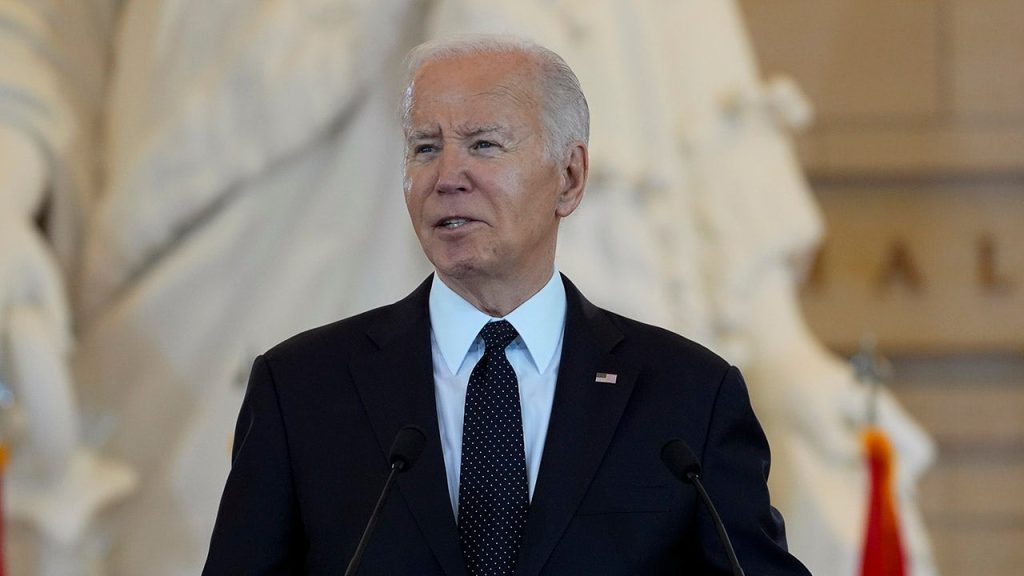The White House National Security Council made the decision to halt the transfer of U.S. weapons that could potentially be used by Israel to launch an assault on Rafah, but wanted to keep the decision undisclosed until after President Biden’s address for Holocaust Remembrance Day. The shipment in question was supposed to consist of 1,800 2,000-pound bombs and 1,700, 500-pound bombs, prompting concerns about how these explosives would be used in a densely populated urban area. Biden stated in an interview that he would not supply weapons for a potential invasion of Rafah, signaling a shift in U.S. policy towards Israel in the ongoing conflict.
Biden’s administration had been reviewing future military assistance transfers in response to Netanyahu’s government moving closer towards an invasion of Rafah, despite opposition from the White House. The decision to pause the shipment was made last week, but a final decision on whether to proceed with the transfer at a later date had not been reached. The decision to withhold weapons from Israel if it invades Rafah has drawn both criticism and support from lawmakers, with some on the left applauding the move as a first step in reevaluating U.S. support for Israel. The pause in the transfer of weapons could have potential implications for the ongoing conflict depending on how long it is sustained.
Recent developments in Rafah, including Israeli troops seizing control of the border crossing and reports of targeted strikes on the city, have raised concerns within the White House. While publicly, administration officials do not believe Israel has defied warnings against a widescale operation, privately there is mounting concern about the situation. The State Department is separately considering whether or not to approve the continued transfer of precision guidance systems to Israel, but this review does not pertain to imminent shipments. The move by the U.S. to halt the delivery of certain weapons to Israel is seen as a symbolic gesture with potential diplomatic implications for the future.
The decision to pause the weapons shipment has sparked a heated debate among lawmakers, with Republicans urging Biden to swiftly end the holdup, citing concerns that it could embolden Israel’s enemies. On the other hand, some Democrats and progressive allies of Biden have voiced support for withholding weapons to pressure Israel to change its tactics in the conflict. Defense Secretary Lloyd Austin confirmed the delay in the shipment, emphasizing the need for the right kinds of weapons for the task at hand and more precise operations. The ongoing conflict between Israel and Hamas is continuing to evolve, and the U.S. position on military aid to Israel may play a crucial role in shaping the outcome.
The U.S. has historically provided military aid to Israel, and there are ongoing debates about the extent and nature of this support in light of the conflict in Gaza. Concerns have been raised about the impact of U.S. weapons on civilian casualties in the region, as well as the broader implications of U.S. support for Israel’s actions. The decision to withhold certain weapons sends a clear message to Israel about the need to consider American interests in its military operations. The use of large bombs in the conflict has raised questions about civilian casualties and the effectiveness of different types of weapons in densely populated areas.
In conclusion, the decision by the White House National Security Council to temporarily halt the transfer of certain U.S. weapons to Israel has sparked debates among lawmakers and experts about the implications for the ongoing conflict in Gaza. The move reflects a shift in U.S. policy towards Israel and highlights concerns about the impact of American weapons on the civilian population in the region. Biden’s administration is facing pressure to reconsider its support for Israel and to prioritize the protection of civilians in conflict zones. The situation in Rafah continues to evolve, and the U.S. stance on military aid to Israel may have significant repercussions for the future of the conflict.


